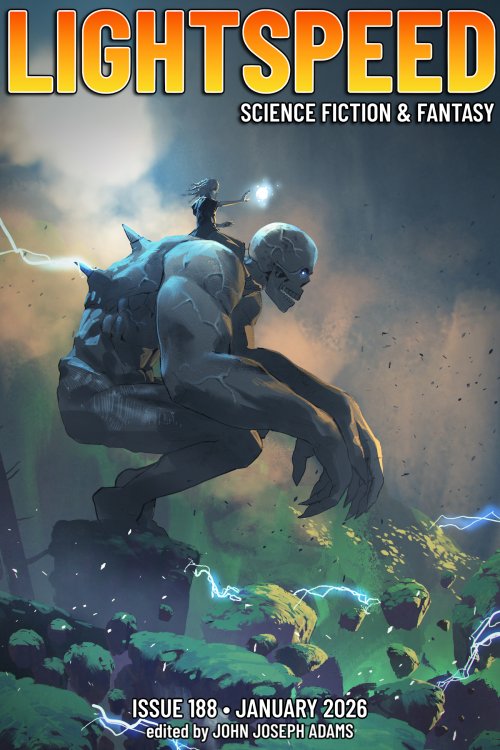You have a knack for writing works that grab a reader’s full attention from the first paragraph, and “The Key to St. Medusa’s” is no exception. Tell us of the inspiration behind the story.
Thank you so much! I’m a writer who very much writes sequentially, and who doesn’t often do a lot of planning before I write. For short fiction in particular, I often just start with a phrase or an image or a feeling, so those first moments are often me trying to grab my own attention as a writer—trying to set up enough that I can feel like there’s a story there.
This story in particular came about because of the different ways the word “witch” gets thrown around. In some cases, it’s a specific word used to describe a woman with magic—a woman with power. In others, it’s used as a pejorative term, used to describe a woman who isn’t liked. Who doesn’t behave as people think she should. So I wanted to play with the idea of being a witch as being a status crime.
The story has its roots in all women’s stories, those told before and after the rise of written language, up to and including the silencing of women by the rise of a patriarchal culture. There are also elements of the story of Bluebeard and his multiple, ghostly wives. Many of your works hearken back to myth and legend, calling on folklore to enrich the narrative. What is it about the older stories that appeals to you as a writer and reader?
Some of it is that these stories are the ones I grew up on. I remember getting out so many collections of fairy tale and myth at the library, just hungering for that sort of story, trying to find as many version of each as I could. I think there’s a power in a story that lasts, and when we retell those stories, when we write new versions, we as writers draw on that power.
But also: yes. Sometimes these stories make me angry. The way, just as an example, that women get treated—silenced, stereotyped, erased from the narrative. And so sometimes a retelling is a way for me to address that anger. A way for me to say, “Here is what the story could have been.” So I am writing as a type of correction.
We saw the release of Roses and Rot earlier this year (and I will admit a fangirlish moment of glee) and you have another novel slated for release in 2017. You are also a vocal proponent of women writers in SF/F/H, as well as speaking out against those who insist women writers are few and far between. If you could speak to all the aspiring women writers out there, what would you tell them about taking pride in, and supporting, their own works?
Your voice matters, and there’s power in it. Tell your story, even if they call you a witch.
All good writers read. Who tickles your fancy when you want to get a good book or story on?
Okay, I’m going to limit myself to ten, because otherwise I could be here all day. I’ve been recently stunned by the elegance of Sofia Samatar’s The Winged Histories. Ken Liu’s collection, The Paper Menagerie, was an exquisite example of the power of short fiction. Alexander Chee’s The Queen of the Night was beautiful and immersive and rich. I’ve just flat-out loved Zen Cho’s Sorcerer to the Crown, Maria Dahvana Headley’s Magonia, Fran Wilde’s Updraft, and Cat Valente’s Radiance—they’re all on my reread pile right now. I read Seamus Heaney’s poetry when I need to clear my head, Kelly Link’s short fiction when I need to remind myself to be weird, and Sarah McCarry to remind myself of how the old stories can be changed.
Writers also can’t spend all of their time behind a keyboard (or hunched over a notebook). What do you like to do when you step away from words on a page? How does Kat Howard recharge her writing batteries?
The thing that’s most inspirational to me, in terms of refilling the creative well, is other art. If I feel like I’m stuck or sputtering, I try to got to a museum, or hear some great music, or watch dance. I also find a lot of inspiration in learning about things—I try to always be reading some sort of nonfiction. Really, anything that helps my brain see things, and feel things differently, I love.
Enjoyed this article? Consider supporting us via one of the following methods:







